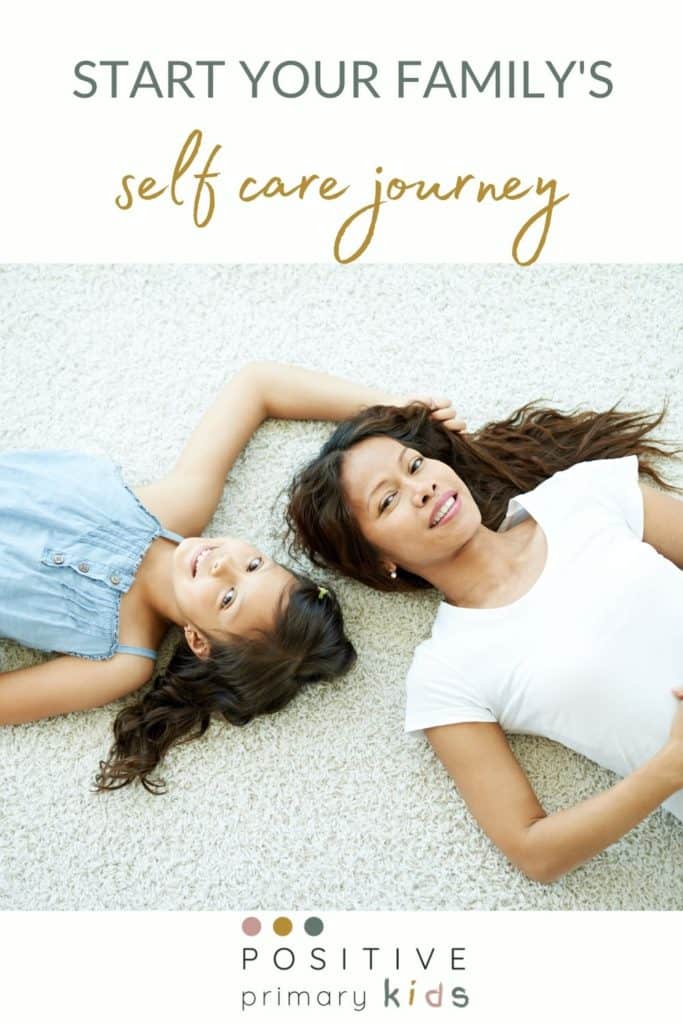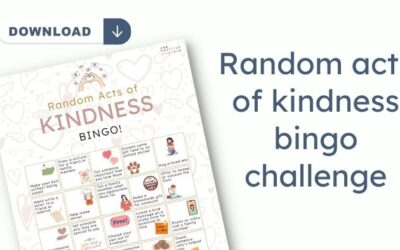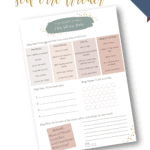Ahhh… long, indulgent bubble baths with your favourite gloriously scented Lush bath bomb, a great book and a glass of wine. Sounds like the perfect evening of self-care, right? Well, you’re not wrong, but effective self-care can be much simpler than luxurious spa days and facemasks.
So what is self-care? Well, at the most basic level, self-care is any action that you intentionally take to look after your health. Even taking the smallest steps to improve your wellbeing can have a big impact. Not just for you, but for those that you care for too.
With our busy modern lives and all the commitments we have, self-care is usually the first thing that gets dropped or neglected. If this sounds like you – are you always putting others’ needs before yours? – then it is vital that you start to take steps towards prioritising acts of self-care. Your overall wellbeing AND the wellbeing of your family will benefit from it.
In this post
Affiliate Disclosure: This post may contain affiliate links. This means that I may receive a small commision – at no cost to you – if you make a purchase through these links. Thank you for your support!
What is Self-Care?
We hear the term “self-care” all the time these days in magazines, on TV, in blog posts like this… But what is it and should you consider making it part of your routine?
Self-care is any action that you take to address your physical, mental and emotional needs that doesn’t involve any type of primary care, such as a pharmacist, doctor or hospital.
Merriam Webster dictionary defines self-care as:
Care for oneself.
Specifically: Health care provided by oneself often without the consultation of a medical professional.
Self-care is NOT activities that you don’t want to do or don’t enjoy (even if they are popular choices for others). You don’t enjoy getting massages? Just because others’ benefit from them, they aren’t right for you.
Perhaps you find yoga healing and transformative and you are aware that you need to start making your practice a priority, but you somehow never find the time to fit it into your life?
So many of us put the needs of those we love first, that ours become completely neglected.
There is never going to be a better time than now to begin carving out some non-negotiable time dedicated to meeting your own needs. After all, how can you be your best for your family if you have nothing left to give? Self-care is NOT selfish.

What Are Examples of Self-Care?
At the top of the page, I described one of my favourite ways to take care of myself, which is by taking a long, heavenly bubble bath, with a glass of red and a great book. Unfortunately, as I only have a shower in my incredibly small flat, I have to find alternative ways to boost my wellbeing.
It doesn’t have to be indulgent, expensive, difficult or time-consuming, but it should be meaningful to you. By meaningful, I mean that it should be something that you can do regularly – ideally daily – that recharges your batteries, is gentle and compassionate and reminds you that you matter.
Here are a few, really simple ways that you can begin making meaningful self-care part of every day, especially if you find it hard to make time for yourself:
- Dance to your favourite song
- Eat a meal you’ve never had before
- Say, “No!” to doing something you don’t want to do (this one I find easier to say than do!)
- Call a friend who can make you laugh
- Permit yourself to do absolutely nothing for 5 or 10 minutes
- Say positive affirmations
What Are the Benefits of Self-Care?
There are countless benefits of self-care. Often, the benefits are connected, helping all areas of your wellbeing when you introduce meaningful self-care into your life.
Here are just a few of the benefits you can experience:
- Higher energy levels
- Clear thinking
- Increased self-esteem and confidence
- Feeling healthier and being less likely to become ill
- Less stress (and more able to come with everyday stresses)
These benefits, as well as countless others, combine to let you have a better relationship with yourself so that you can have a better relationship with your loved ones.
Is Self-Care Important For Kids?
Okay, so we’ve boiled self-care down to the basics by looking at it as simply care that we give ourselves. But it’s not just adults that benefit from meaningful self-care. EVERYONE benefits from self-care.
As soon as children become self-aware and can recognise their emotions, likes and dislikes, they can start to speak up for what they need to look after their bodies and their minds.
The earlier that they learn basic self-care skills, the more likely they are to continue looking after all aspects of their needs into adulthood. Practising and developing self-care skills as they grow helps children learn how to deal with stress throughout their lives and can reduce the risk of developing anxiety and depression. Having a positive relationship with themselves increases self-esteem and lets then see themselves as the wonderful, valuable individual that they are.
So what does self-care look like for children? Well, as with all things children, it depends on their stage of development and readiness. Starting with the basics of personal hygiene, dressing and feeding themselves are great starting points.
This great article about self-care for children from NHS Greater Glasgow and Clyde recommends the following skills:
- Learning to dress independently
- Using the toilet independently and hygienically
- Using utensils to feed themselves
- Hand washing and brushing their teeth
- Keeping their bodies clean
When children begin to take care of some of their needs it gives them a sense of achievement, ownership, pride.
There’s another bonus too…
… it gives you back some time for your own self-care. Win-win!
5 Tips and Reminders
If you’ve read to here and find yourself feeling a bit overwhelmed and not sure where to start, here are a few tips to start your journey off on the right foot:
- Start small. Don’t make loads of changes to your routine at once. It takes time for changes to become a habit and if you try to do too much, you might not succeed.
- Stick it out. Whatever you choose to do, do it daily!
- If it doesn’t make you feel good, stop and try something else.
- Don’t expect benefits overnight. It takes time, be patient.
- Use a tracker to record your progress. Trackers help with motivation, accountability and you can look back at your journey and reflect on what is working and what isn’t working. I’ve made you a free tracker to download and print below.
To summarise, self-care is a life skill. It shouldn’t be something that you resort to when you are already burnt out. It can include any activities that make you feel positive. Finding small ways to improve your wellbeing will make you more positive and happy as well as boost your confidence and self-esteem.
When children make good habits part of their routines they are learning skills that they can take with them throughout their lives and that will give them a sense of achievement and pride.
Grab your Free Self-Care Tracker Here!
Here’s how it works:
- Pick up to four activities from the prompts (or choose your own).
- Make them a priority by doing and tracking them for 7 days.
- At the end of the week, reflect on your journey and tweak your goals for the upcoming week.









0 Comments